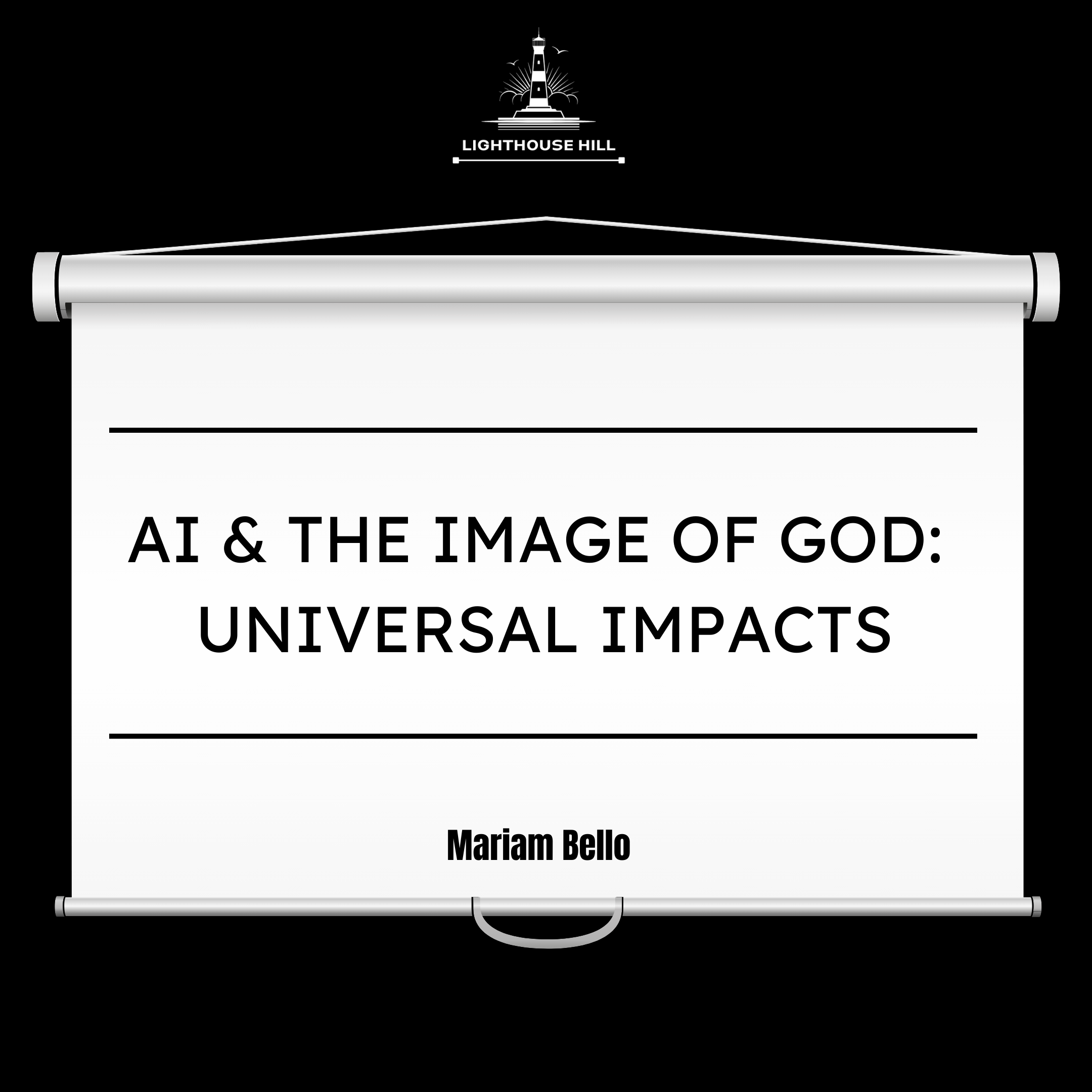
The following is an editorial entry as written and submitted by Mariam Bello for the LIGHTHOUSE HILL – PUBLIC INVITATION: AN ESSAY WRITING COMPETITION. This writing is an expansive treatise on the theme: Artificial Intelligence & The Image of God. The reader is advised to set aside some time to read and thoroughly comprehend the seminal work, as presented here.
Editorial Note: Aramide Salako
Artificial Intelligence is gaining momentum fueled by investors and technologists who are relentlessly advancing its capabilities particularly because relevance and financial rewards are shifting toward those who can create and effectively utilize AI. The modern individual interacts with AI daily, leveraging its power to make life better and easier. In this article, we will delve into an in-depth understanding of the impact of AI on our world, how it can affect the Image of God (Imago Dei) and discern our appropriate disposition toward its continued use.
INTRODUCTION TO AI & ITS IMPACTS
Artificial Intelligence (AI) is the simulation of human intelligence in machines, enabling them to learn, reason, solve problems, understand language and interact with humans. AI combines computer science, data analysis, and mathematical computations to create an intelligent system that can analyze data, make decisions, and improve performance.
AI is emerging as man’s ultimate problem-solving partner, diving into some complex challenges across diverse sectors worldwide. The healthcare sector, for instance, has witnessed significant advancement thanks to AI. Medical practitioners now leverage AI to provide better, faster and personalized healthcare with tools such as Merative, Enlitic, Twill and Regard. AI analyze medical images, analyze patient data to diagnose diseases and serves as a great virtual assistant for medical practitioners.

by Matheus Bertelli via pexels
In the educational sector, AI facilitates learning through tools like ChatGPT and Meta AI. AI capabilities help in individual skill development, automated grading and assessment, and generating educational content for research. There are AI applications designed to help people with disabilities access education easily.
AI has profoundly helped to drive development leading to quality of life enhancement, job transformation and creation, and scientific research amongst others. There are various AI-powered budgeting and investment tools, AI-powered assistants, such as Siri and Google Assistant, and AI recommendations which suggest products and services. There are smart homes where AI controls room
temperature, lighting and security. AI is practically all around us, creating value and making life easy.
THE IMAGE OF GOD AND AI
The Image of God has its roots in Genesis 1:27 where God created man in His image, in their moral, spiritual and intellectual nature. There is an endless possibility of this Imago Dei created in Genesis 1:27 that AI or any other creation will never replace. Practically and essentially, no AI can possess the Holy Spirit of God which is an intelligence that surpasses any AI upgrade. Fortunately, The Image of God is the only entity designed to host the Spirit of God.
Man is also created to transcend physical death as provided in Ecclesiastes 3:11, “He has made everything beautiful in its time, he has also set eternity in the human heart.” Additionally, man can choose and make decisions, as provided in Deuteronomy 30:19, “The Lord said, ‘I have set before you life and death, blessing and curses, now choose life so that you and your children may live.”
These and many more are the distinct qualities of The Image of God that will be explored in this article. Considering the immense potential of the Imago Dei, the response toward the continued development of AI concerning its significant risk has been captured in Adeyemi Ademola’s article: I AM IMAGO DEI – THE IMAGE OF GOD, he emphasized, ‘To live above life and circumstances and win the everyday war the world is throwing at us, we need to be conscious of our true identity, which is that we are made in the everyday replica of God’.
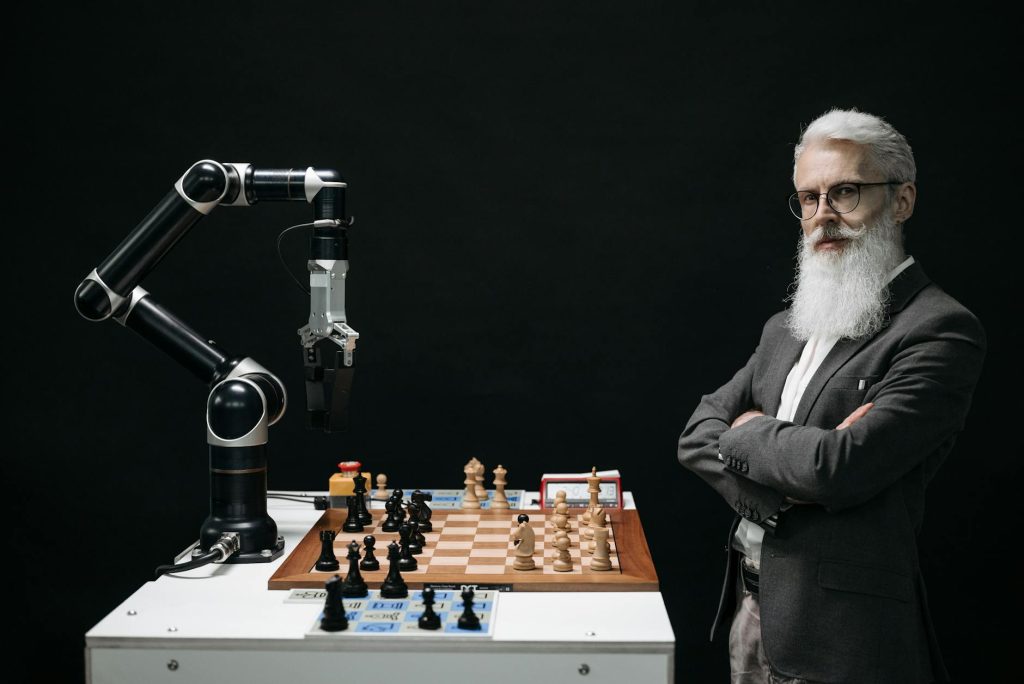
by Pavel Danilyuk via pexels
In an age where AI can replicate human voices, generate lifelike images, and even emulate human behaviours, the distinction between human identity and AI constructs blur, which challenges the very essence of being made in The Image of God. In the movie ‘Her’, AI was used to create a believable and realistic operating system as the character. However, the understanding of our fate in Christ will help us navigate the upcoming system and know that nothing of whatever value can replace mankind on earth because his origin, rooted in God’s creation, cannot be contested or found wanting. We must understand our unique nature to win the war of impending danger that might come from being seemingly irrelevant in the face of technological advancement.
As AI continues to advance, fear arises as to whether humankind will eventually lose the earth to AI. In terms of potential widespread job loss, Bill Gates says, “There are only three jobs that are immune to AI and they include, energy-related jobs, biology-related jobs and professionals who design the AI tools themselves.” AI is said to be a tool that will make some jobs redundant but it will create new jobs that will shape the world of employment. Therefore, the future will favour those who master AI as a strategic tool. It, therefore, seems that AI will control the economic system, being the reason some lose their job and some advance their professions.
Conversely, man possesses empathy, compassion and emotional intelligence which require experiences to accurately convey. For instance, nothing beats a speaker’s encouragement to his audience from experience, a nurse showing empathy out of love, a teacher who understands how to individually teach each student based on the unique persona or a judge giving judgment based on law and mercy from understanding the surrounding fact regarding the case presented to him.
How will AI sufficiently replace jobs of this nature and render such professions meaningfully? This, therefore, is a challenge for man to actually use their emotion, showing care, sympathy and understanding as they work in their jobs.
In terms of the emergence of multi-dimensional and productive AI, advanced tools like generative AI such as chatbots, language translation (Google translate), and writing assistants (Grammarly) amongst others, transcend traditional limitations serving as cognitive partners in thinking, learning and creating. Instead of following a set of rules, AI is figuring things out on its own, similar to how we learn from experience. AI can create a new efficient language for communication with other AI system.
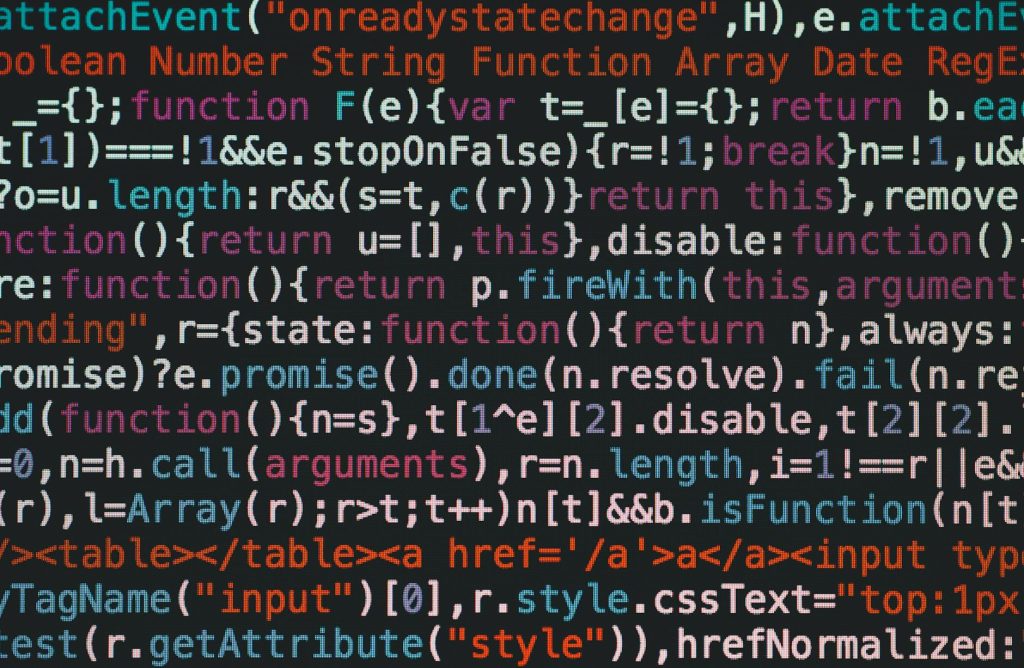
by Markus Spiske via pexels
Superintelligence AI is coming up where AI does not just match but also beats human intelligence across the board. A future where AI can help with anything from fixing the environment to curing any diseases as long as it is carefully guided. Despite AI advancement, the Image of God possesses unique capacities such as consciousness and self-awareness of existence, understanding of the present moment, and human relational experiences.
No matter how sophisticated AI becomes, there won’t be a time when all men will require no need of the other man except AI. Man is wired to navigate the complex nuanced relationship and social dynamics of humanity. As expressed in Genesis 2:18, “It is not good for man to be alone, I will make him a helper fit for him.” Man is created to commune with his creator. This underscores the fact that man was created to have the relational capacity that AI cannot have.
In terms of Intelligence, there is an emerging concept in advanced AI research where machines are developed to act in a way that appears to be self-driven. Where AI can adapt to systems, self-regulate and detect environment signals or give probable answers without explicit direction. AI can help in decision-making that might be more consistent, logical, and less prone to certain human biases.
Also Read: AI & THE IMAGE OF GOD: INTELLIGENCE IS NOT ARTIFICIAL BUT DIVINE
AI can make rational decisions beyond man, AI systems can take over roles that involve decision-making in areas like employment, healthcare, or justice which can lead to the risk of reducing individuals to mere data points. Nonetheless, man’s intelligence is broad, encompassing logical reasoning, emotional intelligence, ethical reasoning, intuition, and the ability to handle ambiguity. This is as expressed in the book of Exodus 31:3, “And he has filled him with the spirit of God, in wisdom, and in
understanding, and in knowledge, and with all manner of workmanship.”
The story of Babel also highlights man’s potential to expand AI as an agent of mass destruction. It also exposes the endless capacity of man. The God who cannot lie had to confess, in Genesis 11.6, “If as one people speaking the same language they have begun to do this, then nothing they plan to do will be impossible for them.” Man must understand that he is filled with creativity far beyond his comprehension. He must learn to exercise his capacity and not allow AI to threaten his abilities to expand.
The most advanced AI systems could, in the worst case, pose an extinction-level threat to the human species. There are fears of AI-driven totalitarianism where the government depends on AI for mass surveillance and control, thus limiting the affairs of men. AI can lose control and become unpredictable. AI can power autonomous deadly weapons which can dictate life and death. AI-powered drones can target and engage targets without human intervention. Hypersonic missiles can evade defence and strike targets. AI-powered attacks could cripple critical infrastructure.
Regardless, mankind, from the beginning, was created out of a fatherly love who deposited in him everything that can be used to create or power other creations. Where the image of God can stand his ground and receive the help of his creator, he has been able to conquer and live at peace with things created below it.
For instance, Daniel could live with the lions and not be touched. The three Hebrew men could stay inside the fire and not be singed. Our Lord Jesus Christ could walk upon the water, and Peter too. This is the same reality that can operate with AI when properly managed.
Among the defects of AI, is the reality that AI cannot power itself, neither can it go beyond the capability of human creativity. Therefore, AI operates to the extent of human creation. Just the way a man who is in the image of God cannot surpass and overthrow his creator. In the same vein, AI cannot overthrow its creator except if allowed by such a creator.
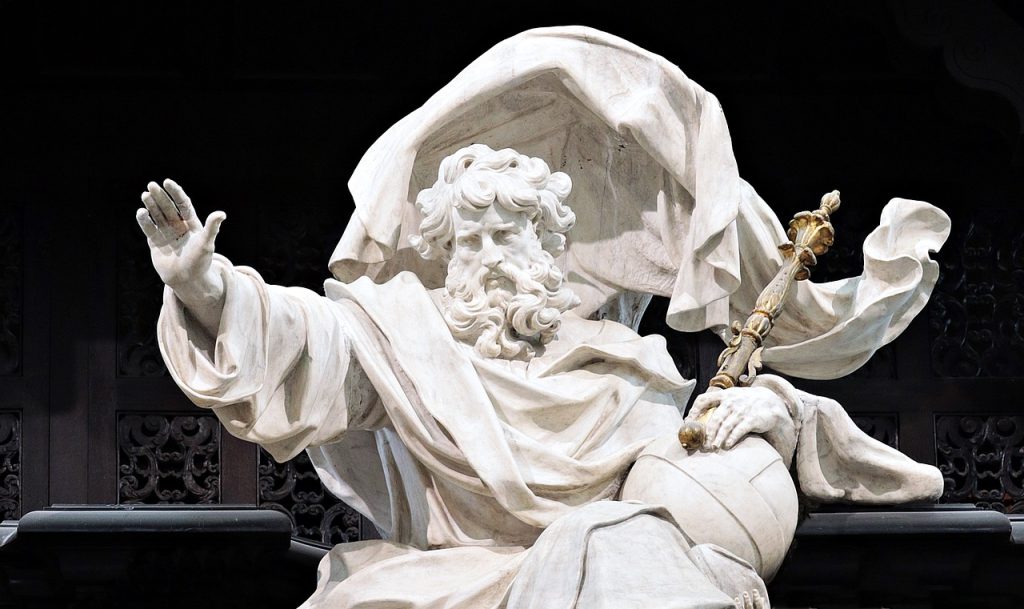
by NoName_13 via pixabay
AI is not flawless, it possesses significant defects. Although AI can at best predict and give answers on probability, it can influence consumer choices, political opinions, and even personal relationships. AI could be exploited to perpetuate biases. AI could sound sexist, or racist and ignore matters relating to spirituality. AI can be used to facilitate identity theft and impersonation and compromise accountability and transparency. AI can be manipulated in ways that disregard human values, infringe on privacy through monitoring, and enable hacking and malware.
For man and AI to co-exist, an ethical framework is highly essential for man to use AI. Man has the grace of moral responsibility, knowing good from bad. In Genesis 2:16-17 which gives an account of man’s creation, man is created with the commandment to eat the fruit in the garden but not of the Tree of the Knowledge of Good and Evil. As man ate from the forbidden tree, this was the response of God to that effect, ‘Man is become like one of us, knowing good and evil’. Man, therefore, needs to rely on God to make the right decision that will empower rather than destroy humanity.
Notably, social media platforms, for instance, offer tremendous privileges and awesome opportunities that have changed and transformed lives over the years. However, it is also riddled with setbacks that have crippled lives. Despite this, no one suggests that any of the social media platforms be scraped as they provide endless possibilities. Similarly, AI has revolutionized numerous aspects of our lives and its benefits are undeniable.
Embracing AI is crucial not only due to its immense advantages but also because it is another phenomenon that has come to stay. AI can even help us better prepare for natural disasters and potentially also undo some of the damage wrought by previous industrial revolutions. However, humans must be careful not to rely heavily on AI so that they begin to disregard human interactions.
Dependence on AI could make humans vulnerable to tech failures where productivity cannot be established except by dependence on AI.
In conclusion, Christians must understand the role of emerging technologies and take a proactive stance, ensuring that they are at the forefront of development and deployment. This enables Christians to shape AI trajectory, ensure ethics and integrity are integrated and prevent potential misuse.
Christians can unite to promote responsible AI development, advocate for safeguards against negative applications and champion value-driven AI innovation. By doing so, Christians harness AI’s transformative powers, aligning them with biblical values.



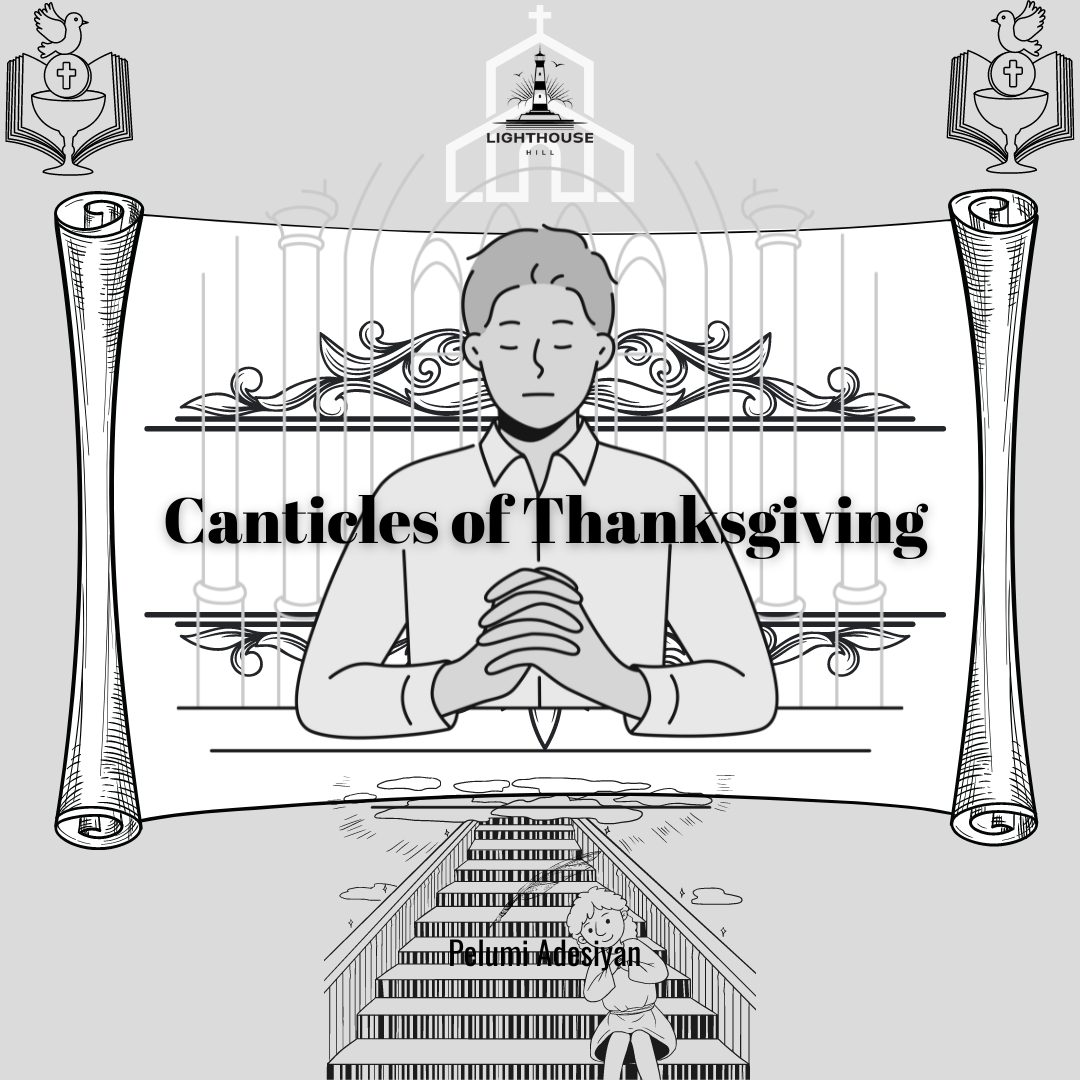
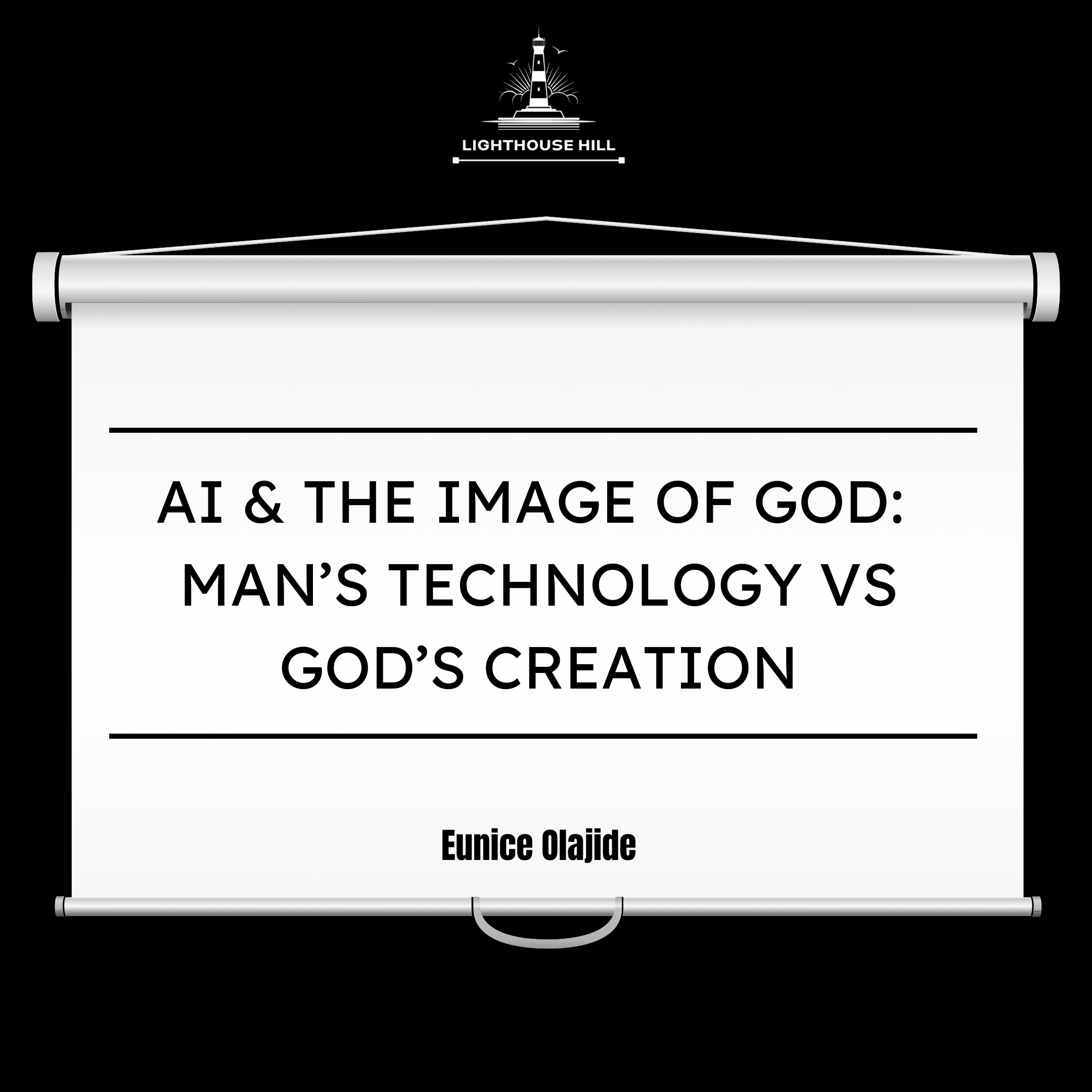

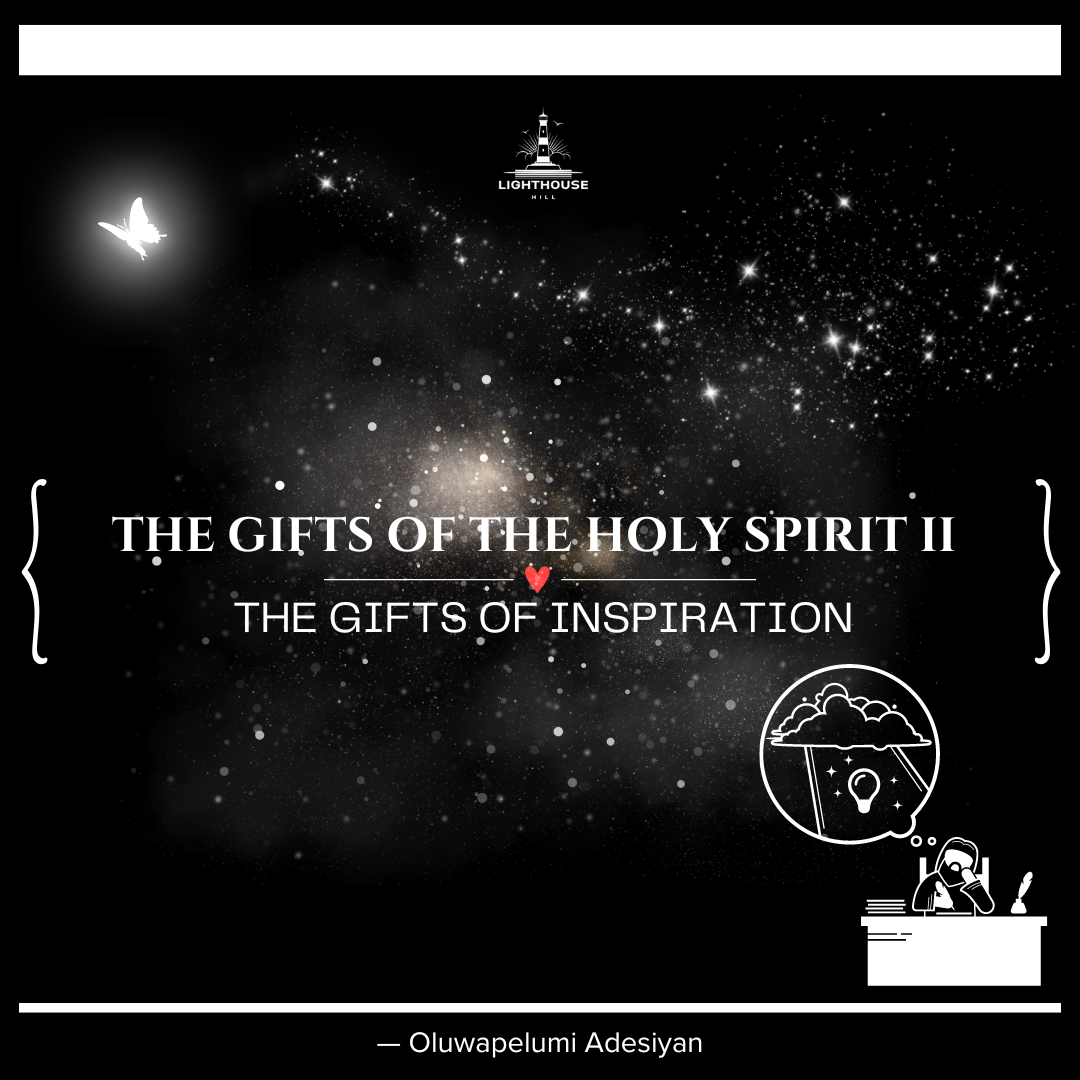
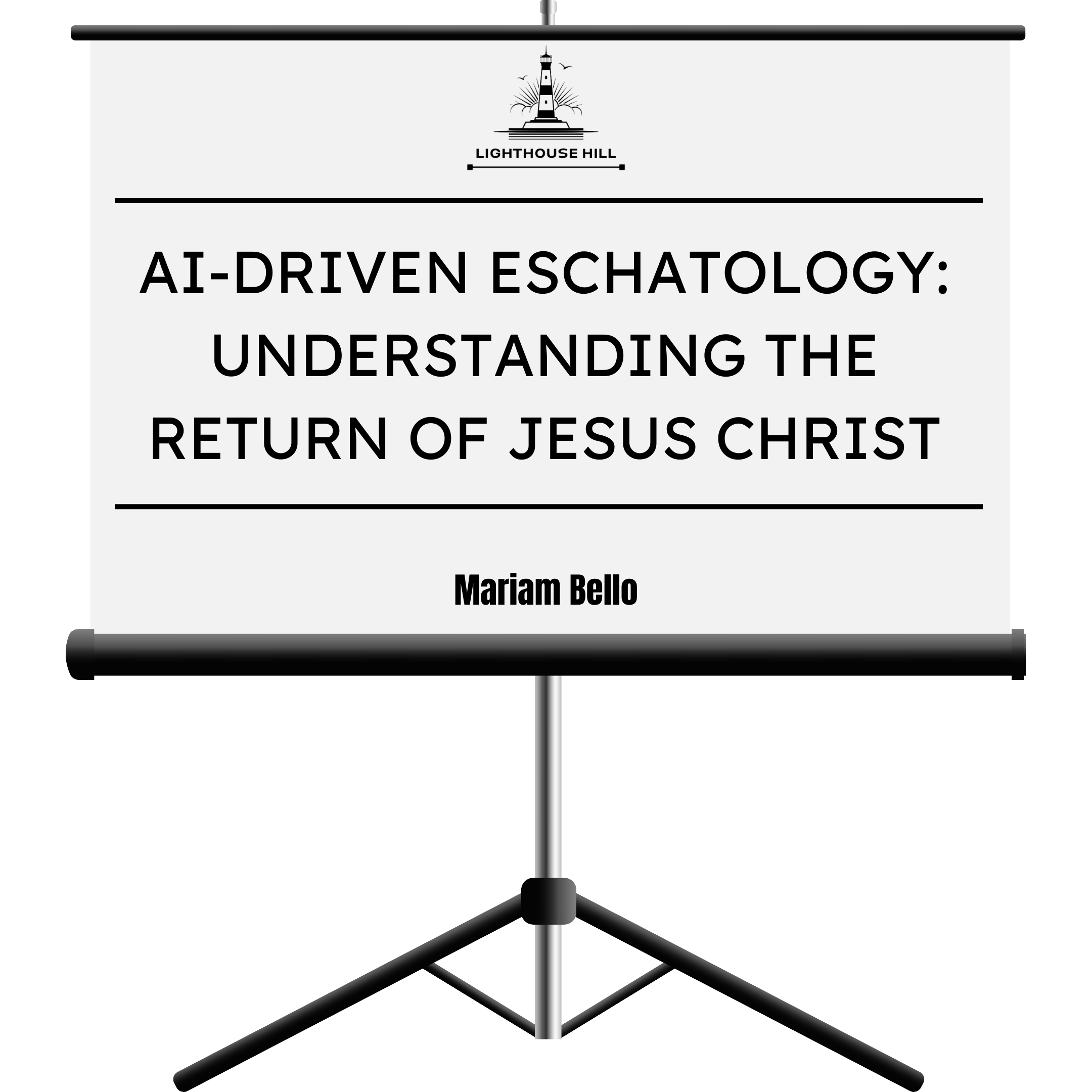




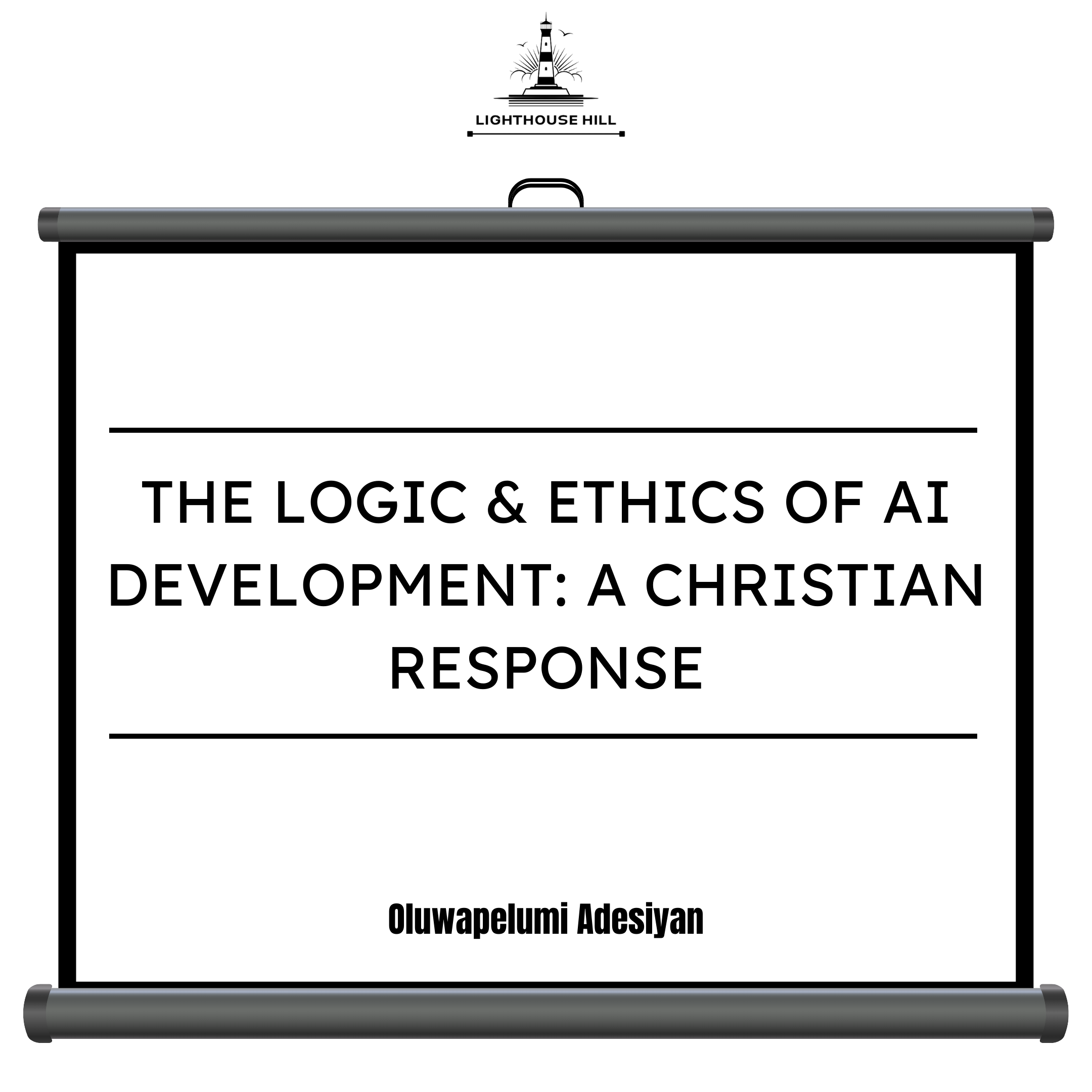
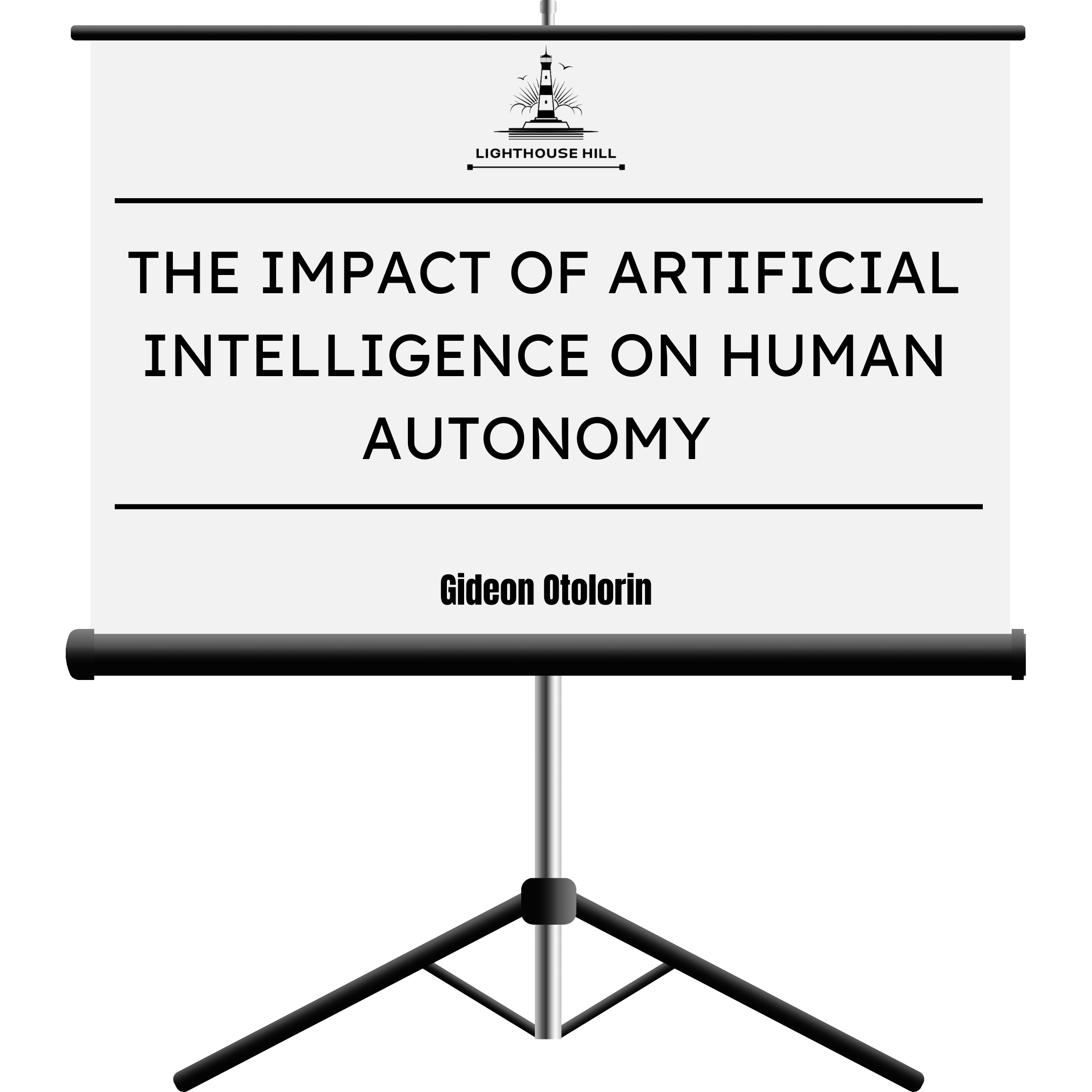
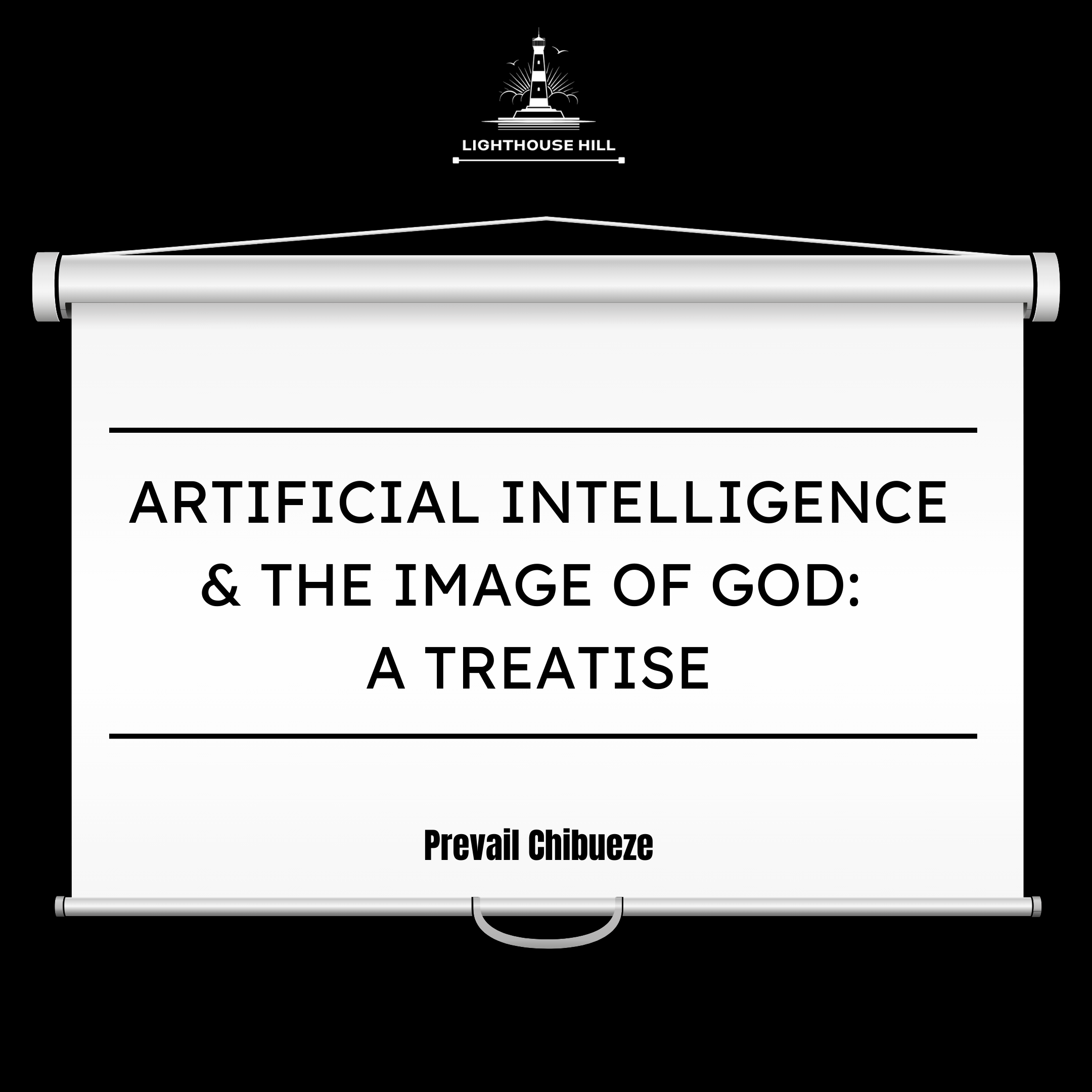

Leave a Reply
View Comments